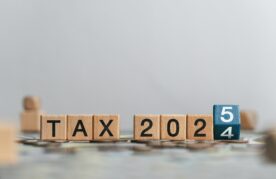Adjustment of interest on tax scheme
The starting point of interest on tax, is that this is charged if imposition of a tax assessment takes too long due to the actions of the taxpayer. The interest on tax scheme relating to income and inheritance tax, however, was not in line yet with this starting point. As a result, sometimes interest was brought into account whereas assessments were done in a timely manner. Since 2014, however, the Tax and Customs Administration has not brought any interest on tax into account in those cases. This practice will now be incorporated in legislation both for income tax as well as for inheritance tax.
Tax rates of general expenditure tax for Saba and St. Eustatius
Since the introduction of the tax system in the BES Islands they have a general expenditure tax (ABB), which, in effect, amounts to a highly simplified VAT. On introduction, the general expenditure tax rates at Saba and St. Eustatius were lower than at Bonaire because of the different starting position in respect of Bonaire. The temporarily reduced tax rates for Saba and St, Eustatius would have applied until 31 December 2018, but given the current level of prices on both islands, the lower tax rates will be laid down structurally. This will prevent the high prices on the islands rising even further as a result of higher general expenditure tax rates.
Adjustment to energy tax
The lowest tax bracket for energy tax on natural gas will be increased and the lowest tax bracket for electricity will be decreased. This brings about a better balance in energy tax rates in relation to CO2 emissions. The government is hoping for an accelerated switch to heat pumps and geothermal heat. As of 1 January 2019, the normal rate of the lowest tax bracket for energy tax on natural gas increases by 3 cents per m3 and the rate for glasshouse horticulture of the lowest tax bracket for natural gas by 0.482 cents per m3. The rate of the lowest tax bracket for electricity will be reduced by 0.72 cents per kWh.
Lower energy tax reduction
The government proposes to lower the tax reduction for energy tax by € 51, from € 308.54 to € 257.54. The tax reduction is a fixed amount deducted for each connection from the energy tax due for the supply of electricity. Revenues from this measure are used for the reduction of tax on income and profits. Low-income households will be compensated through targeted income policy for the higher energy bills.
Reduction of landlord levy
The government wants to reduce the landlord levy for housing corporations. This reduction depends on the size of their investments in sustainability improvements of their housing stock. Landlords who pay landlord levy and bring about improvements in the energy performance of existing rented housing, may be eligible for a reduction of levy. Then the housing unit must be improved by at least three (3) Energy Efficiency Index (EEI) classes, which, after renovation, results in an Energy Efficiency Index of up to 1.4 (labelled B or better). The envisaged date for entry into force is 1 January 2019, but this date has not yet been finalized.
Betting and Gaming tax on sports betting
Providers of country-related sports betting are taxable entities for betting and gaming tax. This creates equality in respect of providers of sports betting and online bingo, and these providers will also be liable for betting and gaming tax.
For other games of chance, the betting and gaming tax is levied on the player. For promotional games of chance, the person who receives the prize remains the taxable person and the tax is calculated on the prize.
Entry into force depends on the online games of chance bill (currently being debated in the Dutch Senate).
Betting and gaming tax rate
In 2018, the betting and gaming tax rate was temporarily increased to 30.1%. This temporary increase was not extended, so the tax rate will return to 29% at a time to be determined by royal decree, in accordance with current planning, six months after entry into force of the Online Betting and Gaming Act (Wet Organiseren van kansspelen op afstand).
Participants fine
An administrative fine can be imposed on offenders of tax laws. Since 2014, this also applies to those offenders’ assistants. This includes the instigator, the accomplice or the person enforcing the offence to be committed. This extension provision was valid for five years, but now this time limit has been extended for a further period of five years until 1 January 2024. So far, the Tax and Customs Administration has made little use of this, but this provision could enable an important preventive mechanism.
Please note!
The approach of professionals involved in tax avoidance is increasingly attracting more attention. Consideration is being given to disclose the participant fines imposed on those in the legal profession. However, this has not been included in this bill.
Waste tax on exports
Waste tax will also apply for waste that has arisen in the Netherlands and has been dumped or incinerated abroad. A connection has been sought in existing EC regulations for shipping waste, on the basis of which the party who ships the waste abroad must report this (the notifier).
Pregnancy and pension accrual
A period of absence due to pregnancy or childbirth, still results in the pension accrual being suspended for independent professionals who are obliged to participate in a pension scheme. Legislation is being amended so that it is possible for such pension accrual simply to continue.
Exemption on foster care allowance
The income tax exemption for foster care allowances would have ceased as of 1 January 2019. This would result in the allowance being partially taxed in the case of foster care to more than three children. The exemption is now extended by one year to 1 January 2020. The government expects that the exemption will then be structural, which means without an expiration date.




